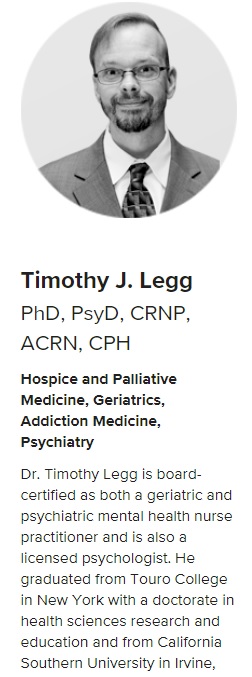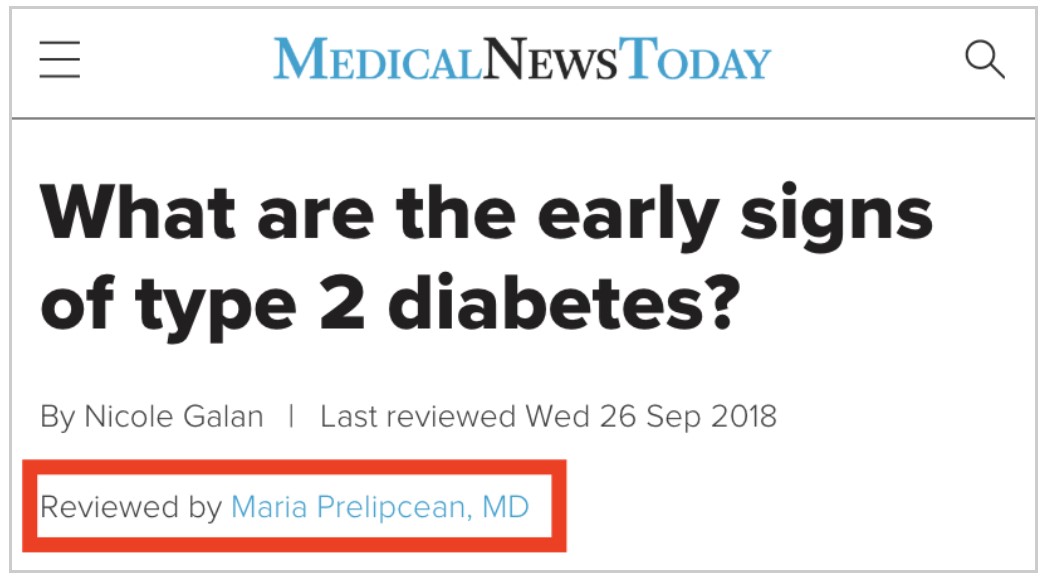
In the 21st century, we aren’t so quick to rush to our doctors if a troubling health symptom occurs. Instead, we often scramble to the internet to do our research. Knowing full well the power of an internet search, Google places a great deal of importance on the ranking of web pages covering these two topics topics that cover either “your health or your wealth.”
Your Health and Your Wealth
relevant results to its users. It also works to offer the most current and correct information on these topics. Pages that Google feels could negatively impact users’ future “happiness, health, safety or wealth” are categorized as YMYL. If you’ve never heard of YMYL, you are not alone.
The acronym stands for “Your Money or Your Life.”
Websites that fall into the YMYL category are held to a higher standard when it comes to producing credible information.
Did Google E-A-T my YMYL site?
In August of 2018, Google rolled out a massive core algorithm update that shook up the web. Some sites saw their organic search traffic drop by a staggering 50% after the update.
In Barry Schwartz’s review of 300 sites affected by the update, he reported 42% of websites were in the “medical, health, fitness, healthy lifestyle vertical.” The phenomenon was named the “Google Medic Update” even though the update was not meant to affect only medical sites.
The “Medic Update” revealed that Google wants to be as sure as possible when recommending YMYL sites. When it comes to health-related issues, Google aims to present search results for sites that display a high level of Expertise, Authority, and Trustworthiness, which is what E-A-T stands for.
Therefore, sites that publish uneducated advice or have pages filled with unproven personal opinions can gain an untrustworthy reputation. This type of content earns low E-A-T scores and falls into lower-ranking categories according to Google.
The Importance of Expertise, Authority, and Trustworthiness (E-A-T)
Google has an ongoing crusade against low-quality content to prevent searchers from potentially setting out on the wrong path or putting themselves in harm’s way. Google believes that better website recommendations can prevent the spread of misinformation in the healthcare industry.
For example, a study published in 2016 found that the first 200 search engine hits for “idiopathic pulmonary fibrosis” led to websites with not just inaccurate information but also dangerous treatment methods.
E-A-T, a system derived from the Quality Raters’ Guideline (QRG), serves as a metric used by Google’s human quality raters to judge a page’s quality. Google employs over 10,000 human evaluators to analyze real-life examples of webpage content and rank it on an E-A-T scale from “lowest” to “highest” quality.
The feedback from these evaluators is passed on to Google’s engineers who develop and fine-tune the algorithms, making sure they accomplish what they are supposed to—figuring out which sites can be trusted.
In general, pages that receive high E-A-T scores tend to perform better on Google search.
So, if you are a medical doctor, complementary health provider, or health coach looking to gain visibility on Google, you need to know your E-A-T score before releasing your new content.
Background: Some Basics About How Google Search Works
The web is like an ever-growing library of books with no central filing system, with new pages created every day.
In this section, we’ll explore how a search engine works behind the scenes in order to offer search results.
Google search employs three methods:
-
- Crawling: Google uses bots to crawl the web and discover publicly available web pages every day.
- Indexing: When a new webpage or an updated content is discovered, it gets added to Google’s index. If your webpage is not indexed by Google, it won’t show up on its search result page.
- Ranking: When a user types in a query in the search bar, the Google ranking system sorts through billions of web pages in their index and ranks them for relevance and quality.
Build Expertise, Authority, Trustworthiness (E-A-T) into Your Healthcare Content & Website
To establish a positive appearance on Google’s organic search ranking, you’ll need to assert your expertise, authority, and trustworthiness (E-A-T).
Next, we’ll explore how Google interprets the various signals that point to these three important factors.
Expertise Signals
First, we’ll deal with the recognition of Expertise Signals.
These occur when the author of the website content can be considered an “expert” on the subject matter.
Authorship and Credentials
Google makes it clear that YMYL topics, which include health issues, must be written or verified by accredited, qualified experts to be rated high in search results.
Articles or websites which don’t show clear authorship, fail to demonstrate lack of credentials, or have a negative online reputation will be ranked low.
One way to instantly help your ranking is to make sure all your online healthcare articles have simple bylines clearly indicating the author’s name.
Byline is a short amount of text commonly shown after a headline but before the body copy. The byline includes the name of the author and is often accompanied by a hyperlink to the author’s biography page.
Quality raters study the author’s biography to check out if the author is qualified to give out health-related advice on a topic. They also check out external sources such as the author’s social media page (Facebook, LinkedIn) and other publicly available information.
To help Google raters determine whether your “E” (Expertise) is good, brag about your credentials and/or proud achievements in the author biography section and include additional links in the byline.
For example, tell them you obtained your Medical Degree from Johns Hopkins School of Medicine (Education / Qualification), worked for 20 years at a major hospital as head surgeon (Work Experience), performed heart transplant surgeries for the country’s Vice President and politicians (Publicity), and recognized by Forbes as the Top 20 most innovative Surgeons (Recognition).
The following excepts pictured below are examples of a byline from Healthline.com and the corresponding author biography page:
Byline
Author biography
Expert Written and/or Expert Reviewed Content
In addition to authorship and credentials, it’s important to stress the expertise level of the authors that supply content to your website.
To rank higher in search results, you want to offer content that addresses the goals of your website, be it informational or for marketing purposes.
Your content should also align with the information your target audience is searching for online.
Position yourself as a Subject Matter Expert (SME).
Include plenty of original and useful content that shows you have the requisite experience to speak intelligently and accurately about the topic at hand.
Sometimes, it’s helpful to narrow your niche and offer highly specific advice about specialties you’re most familiar with.
This helps establish your credentials as an “expert” in your field of interest and also eliminates more general competition.
Also, when you write an article summarizing new, third-party research, this counts as original content.
Through your understanding of the topic, you’re able to help the layman, and most of your target audience, understand scientific findings that might otherwise be hard to comprehend.
These kinds of articles help populate your site with more helpful information and can be cited as sourced from experts in the field.
In addition, correct grammar, punctuation, and writing style goes a long way to improve your ranking.
According to the QRG, “high-quality medical advice or information should be written or produced in a professional style and should be edited, reviewed, and updated on a regular basis.”
One last thing to note, if you don’t have any formal training or education in your chosen topic, have your work vetted and reviewed by experts.
This is a crucial step that enables Google to treat this as a reliable piece of information.
Below is an acceptable example of an article that was not written by a health-care professional but which was reviewed by a medical doctor:
What to do What not to do Display author’s credentials eg. education, qualifications, awards and recognition, mentions and publicity, etc. Lack of author’s credentials mentioned on the website. Healthcare article is written or is reviewed by experts in the field. Healthcare articles written by anonymous, or non-experts. The article was also not reviewed by an expert. Original, accurate, comprehensive health-related content presented professionally. Adds value to searchers. Regurgitation of other existing contents or ideas on the web. Contain misinformation. Generic or shallow coverage of a health topic. Little to no value added to searchers after reading the content. Authority Signals:
Authority signals tell Google how well an author is recognized in his field of expertise.
Google scrutinizes your brand, your website, and your content to see if it is expertly written and if the authoritative content is readily available.
By definition, authority, or “authoritativeness,” is traced back to a person or website that is “able to be trusted as being accurate or true; reliable.”
Backlinks
Backlinks are probably the biggest contributor to “A-Rated” authority signals.
They are the internet’s equivalent to offline word-of-mouth referrals.
When your webpage is being referred to by others on their own websites, it’s a good sign of authority and respect.
Google sees the actions of sharing and referrals as endorsements of quality, trust, and authority.
In return, the search algorithm rewards your webpage with better visibility on SERP.
Note their ranking system is not able to identify the factual accuracy of a content, hence it relies on backlinks to determine the E-A-T score.
In general, the more links pointing to your website, the more authoritative your website appears to be. However, not all backlinks are created equal.
Some backlinks make a small impact, and others produce much bigger results.
Some may even backfire.
For example, a backlink from a small, unknown website is not going to have as much of an impact than a mention on a relevant and highly authoritative website will have.
Using a restaurant review for example, we can see that the strength of a backlink from a small-time lifestyle blogger versus a backlink from an award-winning food critic blog praising your restaurant will greatly affect the consumer interactions.
Google will place higher trust in the latter review, and your site’s ranking will reflect this.
Due to the great need for backlinks to improve rankings, many websites have tried to manipulate and even buy backlinks hoping to create a façade of popularity and relevance.
Initially, they were successful in climbing their way to the top of Google search results.
Another trick often adopted was to spam the comment section of a popular website with links to their website.
However, the roll-out of 2012 Google Penguin algorithm update means Google can now discover these kinds of unnatural backlinks.
Websites identified as using these so-called “black hat” backlink tactics now get penalized or demoted from rankings.
It can be challenging to consistently attract organic, quality backlinks.
Focus on writing original and valuable content.
Over time, this plan will lead to legitimate backlinks and helpful referrals from authoritative sites.
The key is to create content around topics that your audience wants to learn more about and share your unique knowledge with regards to those fields of interest.
This process will allow you to steadily establish yourself in the mind of users and in the Google algorithms as the go-to-expert and utmost authority on those topics.
Client Reviews
Google loves to see client reviews, and they work much in the same way as backlinks.
Once again, these involve your audience.
Client reviews signal to Google that your business is legitimate and actively running, and they reveal the overall public sentiment pertaining to your business.
If online reviews or forums are full of people talking about and praising your work, you gain a head’s up on your competitors and are more likely to be viewed as an authority in the field.
The Google search quality guidelines state that “popularity, user engagement, and user reviews can be considered evidence of reputation.”
Social proof theory states that when people are faced with uncertainty, they look to others for guidance on how to behave.
Therefore, user reviews become a critical component in determining if you will gain new clients.
Power Reviews study says over 97% of Americans look at product reviews before making a purchase.
Encourage your satisfied clients to add their testimonials to your website.
These testimonials will fundamentally help with your SEO.
You can also have a place for them on Google My Business and Facebook.
Testimonials can come in the form of a quote, a video, or even a more elaborate case study.
Make it easy for your clients to add their testimonials by having a clear space and process dedicated to their contributions.
Content Backed by Scientific Consensus
According to the QRG, “there is a high standard for accuracy and well-established scientific consensus where such consensus exists.”
Along with backlinks, you can outbound link to credible, high authoritative sources of information. For instance, outbound links to a research study or academic journal, are particularly helpful in improving search rankings. Especially if those sources are .gov, .org, or .edu websites.
To illustrate the point, after the Medic Update, natural health sites got in trouble for making claims that were not well supported by mainstream scientific evidence.
This is largely because it is in the very nature of these websites to go against conventional health consensus.
Unfortunately, quality raters at Google are instructed to rate these articles as lower quality, when they express information that contradicts scientific consensus.
Here are some tips from a reputable SEO expert, Marie Haynes, on how natural health sites can recover from the Medic Update:
- Is this article written by an expert or enthusiast who knows the topic well, or is the content thin and shallow?
- Does the article provide original content or information, original reporting, original research, or original analysis? Or is the information regurgitated from somewhere else?
- Does the article describe both sides of a story? If you believe a natural medicine can do wonders to cure a disease, but the general scientific consensus says otherwise, you will need to present both sides of the argument. Explain why physicians may not agree with your treatment suggestions and then give as much good solid evidence as you can to explain your thoughts. The content would come off more objective to readers than merely proclaiming one thought is true.
- Is the site a recognized authority on its topic? Improving brand authority goes hand in hand with improving E-A-T.
- For a health-related query, would you trust information from this site? Things that contribute to trust include scientific references, recommendations from experts, and more.
- Write a disclaimer on your website. Inform readers that your health advice and recommendations are not intended to constitute medical advice or to be a substitute for medical advice.
What to do What not to do Attract backlinks naturally from authoritative healthcare industry-related websites by earning their endorsement on your truly amazing content written. Acquire backlinks by means of manipulating or buying to rank on top search results, instead of earning the coveted first-page spot by merit of content value and relevance to searchers. Overall positive public sentiment about your healthcare business. Overall negative public sentiment about your healthcare business. Content that is well supported by scientific consensus, where such consensus exists. Cite out to credible research, statistics, and data. Content that goes against scientific consensus. Trustworthiness Signals
Can users safely use the site and its information?
While expertise and authority can boost a site’s ranking, the lack of trustworthiness can easily sink one.
The idea of trust is to foster a sense of safety and security, thereby reducing the doubts of potential leads deciding whether to use a site’s information and/or service.
Here are some ways to promote a site’s trustworthiness:
- Users are easily able to contact a human about your business. The Contact Us page should have a current phone number, email, and physical address.
- Humanize your brand. Showcase high-resolution photos of the owner and/or staff. People respond to people, not faceless brand logos.
Have a consistent NAPW (Name, Address, Phone Number and Website URL) across all online listings. Create your Google My Business listing, if this is not done yet. - Have genuine, honest client reviews. Not only do these showcase the quality of your service, but they also signal to Google that your site and service is trustworthy and valuable. Fundamentally, any reputable businesses must be able to meet the needs of their clients, and this is shown through positive client reviews.
- Address any online complaints about your products or services before too much negativity is attached to the brand. If Google senses a bad reputation, the site’s ranking is most likely going to drop.
- Consistent posting builds trust. The more content you produce, the more search queries your content can rank for. Hubspot reports that companies that published 16+ blog posts per month got almost 3.5X more traffic than companies that published between 0 – 4 monthly posts.
- What sites do you link to? If your external citations link to authoritative sites, it signals your information is reliable and trustworthy.
- What do people do once they are on your website? If they spend time reading, visiting multiple pages, and revisit your website, user activity shows that your content has value and can be trusted.
- Make sure that your website has a Privacy Policy in place and that it’s easy to locate from the home page.
YMYL, EAT and SEO are all interlinked.
If your healthcare site follows E-A-T guidelines, it’s more likely to appear in the top search results, attract more traffic, and gain more conversions.
However, it’s important to note that having a high E-A-T score alone does not automatically guarantee page # 1 rankings.
This is because many other factors (200+ of them) go into Google’s secret ranking algorithm.
But we know one thing for sure.
With Google’s emphasis on serving high-quality content to users, the long term approach would be to have your healthcare pages optimized with E-A-T signals.










 Having Trouble Raising Your Prices?
Having Trouble Raising Your Prices?